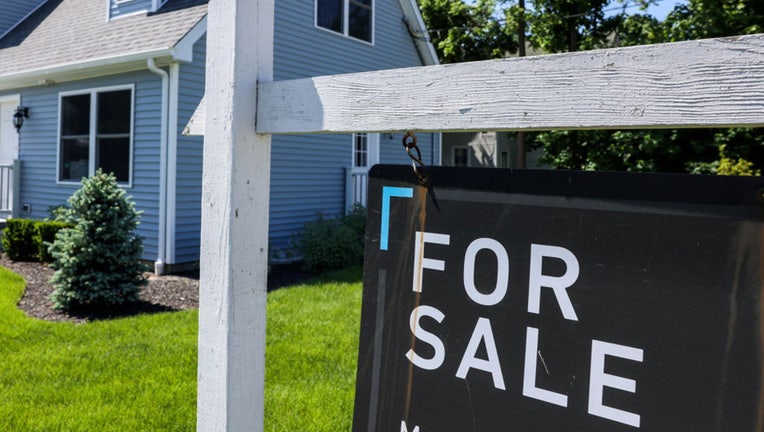Things they don’t tell you about buying a home

A For Sale sign hangs in front of a house in Patchogue, New York, on June 1, 2024. ( Steve Pfost/Newsday RM via Getty Images)
Purchasing a home for the first time is daunting, exciting and stressful.
With buying a home, outside of the mortgage, there are a lot of things many first time home buyers may overlook and often feel like they’re hit out of nowhere with additional costs, according to Daryl Fairweather, chief economist at Redfin. But more than those unexpected costs, there is an emotional aspect that many buyers don’t factor into their decision-making.
Here are the top three things Fairweather tells future home buyers to look out for to avoid getting caught off guard.
RELATED: NAR settlement: What's changing about buying, selling a house?
There’s more than just a mortgage
While a mortgage is important to consider when buying a home, don’t forget about those other expenses that will be in addition to that, such as property taxes, homeowners insurance, maintenance and repairs.
"While a mortgage payment may be predictable with a fixed rate mortgage, those other costs can increase over time," Fairweather said.
It’s best to focus on how much your monthly payment will be and if you can afford it, according to Bankrate. Just because you qualify for a hefty loan doesn’t necessarily mean you can handle those payments.
It could also be a good idea to attend first time home buyer classes that are put on by nonprofits, banks, lenders and real estate agents, Fairweather added.
Buying a home is emotionally taxing
It happens to the best of us. You go in thinking you know exactly what you’re looking for in a home but then you get sidetracked by the kitchen size, the paint color, the fireplace (or lack thereof), and the price.
On the other hand, the home you’re looking at is exactly what you were hoping for and you want to snag it before someone else swoops in. So, you put down an offer, but then you get that pit in your stomach: Did you possibly offer too much?
"Buying a home is both a financial and emotional decision. That can make the buying process even more stressful for first time homebuyers who don’t know what they want versus what they need out of a home. It can be difficult for first time home buyers to win against more experienced buyers in a bidding war because the first time buyer may second guess themselves and hesitate, or may feel more concerned about mistakenly over-paying for a home," Fairweather said.
One tip to help you slow down and take stock of what’s going on during the buying process is to create a timeline, according to Bankrate.
"The biggest mistake that I see is to not plan far enough ahead for the purchase," Nick Bush, realtor with Keller Williams, told Bankrate.
Shop around for an agent
Since buyers will now have more negotiating power over of how much their real estate agents get paid, it’s best to shop around to find an agent who you know will help you find the perfect home that’s in your budget.
"First time homebuyers should prioritize an agent who knows their local market and understands what the homebuyer wants," Fairweather said.
Your agent or possible lender can help you figure out taxes, insurance costs and utilities which can help lessen the shock of those added expenses. So choosing the right people to work with can make a world of difference.
In March, the National Association of Realtors announced that the rules on sales commissions for agents were eliminated after a settlement was reached.
The settlement is in response to multiple lawsuits claiming homeowners have been unfairly forced to pay artificially inflated commissions to Realtors when they sold homes.
The typical commission on the sale of a home is 6%, which pays agents for the effort to list and show homes. The fee is usually paid by the seller of the home, and is sometimes split between the seller’s agent and the buyer's agent.
- For a $1-million home, that means $60,000 in real estate commissions.
- For a home that sells for $412,778 – the current median price for a home in the U.S., according to Redfin data – that works out to just under $25,000 in commissions.

